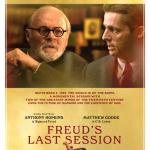
Conference Talks: Bearing Testimony in Hebrew: A Comparison of Ancient Israelite Temple Worship with Modern Latter-day Saint Testimony Meetings, presented by Ryan Davis at the Interpreter Foundation’s 2018 Temple on Mount Zion Conference
The fourth “Temple on Mount Zion” Conference was held on Saturday, November 10, 2018 in the Tanner Building at Brigham Young University, Provo, Utah.
The presentations were filmed, and both video and audio recordings of each presentation are available. The videos are currently available both at https://interpreterfoundation.org/conferences/2018-temple-on-mount-zion-conference/2018-temple-on-mount-zion-conference-videos/and on the Interpreter Foundation YouTube channel at https://www.youtube.com/c/theinterpreterfoundation. A YouTube playlist is also available at https://www.youtube.com/playlist?list=PLRMn4gyXMWLsWt34zVNC5FmTqBtFfcnxl. The audio recordings are available at https://interpreterfoundation.org/conferences/2018-temple-on-mount-zion-conference/2018-temple-on-mount-zion-conference-audio/.

I mentioned here previously that we were joined for part of our tour in Egypt by one of my former students in the Jerusalem-based intensive Arabic program that I led many years ago, and by her husband (a retired biology professor and a former bishop). They are living in Egypt right now as volunteer humanitarian service representatives for the Church of Jesus Christ of Latter-day Saints, working primarily among refugees. Yesterday, while waiting for the luggage from our flight from London to Salt Lake City, we ran into another student from that small group in Jerusalem (a former bishop, by the way); he had returned on the same flight after having spent time in India, where the company that he heads supports a school for the children of lepers and for the poor. It’s amazing, in view of the massively and comprehensively evil character ascribed to me by my fans on the Peterson Obsession Board, that any of my students managed to escape my malign influence in order to go on and do good things. Apparently, though, despite my best efforts to corrupt them, a few have.
And, perhaps via the same kind of unaccountable miracle, Utah came in ranked as the happiest state in the United States, presumably despite what one of my readers views as the malignant influence of the Church of Jesus Christ of Latter-day Saints. “Utards,” as some critics characterize them — a subset of “Morgbots,” who are more widely distributed, geographically speaking — appear to be doing fairly well: “Happiest States in America.” (My thanks to John Perry for calling this article to my notice.)
Which provides me with a helpful segue into mentioning yet another abomination from the Christopher Hitchens Memorial “How Religion Poisons Everything” File™: “Religion’s Relationship to Happiness, Civic Engagement and Health Around the World: In the U.S. and other countries, participation in a congregation is a key factor.”
“In the decades that followed [the pioneering work of Émile Durkheim in the sociology of religion], the potentially harmful effects of religion were brought to the public’s attention, in part due to the popular writings of secular intellectuals including Sigmund Freud and Friedrich Nietzsche. Freud, in his 1927 book “Future of an Illusion,” compared religion to a childhood neurosis, while Nietzsche famously described Christianity as a “sickness.” Even in the second half of the 20th century, some influential psychologists continued to follow Freud’s lead by defining religion as a neurosis that should be cured by psychotherapy.
“Recently, scholars have applied more scientific rigor to their research on religion, and many of the studies that have been published in the past 30 years have found that religious people tend to live longer, get sick less often and are better able to cope with stress. One study of adults in Texas, for example, found that regular service attendance is positively associated with a variety of healthy behaviors such as doctor visits, taking vitamins, and refraining from unhealthy behaviors such as alcohol and tobacco use. Another paper concluded that people whose obituaries referenced religion tended to have lived longer than those whose obituaries made no mention of religion.
“In the comprehensive “Handbook of Religion and Health,” Duke University professor Harold G. Koenig and co-authors summarize 21st-century findings from the rapidly expanding field of religion and health research. According to their analysis, religion is positively associated with life satisfaction, happiness and morale in 175 of 224 studies (78%). Furthermore, religion is positively associated with self-rated health in 27 of 48 studies (56%), with lower rates of coronary heart disease in 12 of 19 studies (63%) and with fewer signs of psychoticism (“characterized by risk taking and lack of responsibility”) in 16 of 19 studies (84%).
“Of course, this also means that a substantial number of studies have found no clear association, or have even concluded that religion is associated with worse health outcomes. For example, several studies have found that religious people tend to have a higher body mass index (BMI). Northwestern University cardiologist Matthew Feinstein and his colleagues, in an analysis of an unusually large sample of 5,500 Americans, concluded that both religious service attendance and regular spiritual experiences are associated with higher rates of obesity. Other studies suggest that people who view humans as sinful and participate in religious communities that emphasize human sinfulness are more likely to suffer from anxiety and depression.”
So what does this particular report have to say?
“People who are active in religious congregations tend to be happier and more civically engaged than either religiously unaffiliated adults or inactive members of religious groups, according to a new Pew Research Center analysis of survey data from the United States and more than two dozen other countries.
“Religiously active people also tend to smoke and drink less . . .
“Many previous studies have found positive associations between religion and health in the United States. Researchers have shown, for example, that Americans who regularly attend religious services tend to live longer. . . .
“Taking a broad, international approach to this complicated topic, Pew Research Center researchers set out to determine whether religion has clearly positive, negative or mixed associations with eight different indicators of individual and societal well-being available from international surveys conducted over the past decade. . . .
“This analysis finds that in the U.S. and many other countries around the world, regular participation in a religious community clearly is linked with higher levels of happiness and civic engagement (specifically, voting in elections and joining community groups or other voluntary organizations). This may suggest that societies with declining levels of religious engagement, like the U.S., could be at risk for declines in personal and societal well-being. . . .
“Whatever the explanation may be, more than one-third of actively religious U.S. adults (36%) describe themselves as very happy, compared with just a quarter of both inactive and unaffiliated Americans. Across 25 other countries for which data are available, actives report being happier than the unaffiliated by a statistically significant margin in almost half (12 countries), and happier than inactively religious adults in roughly one-third (nine) of the countries. . . .
“When it comes to measuring civic participation, the results again follow a pattern: On balance, people who are actively religious are also more likely to be active in voluntary and community groups. This dovetails with previous studies in the United States. . . .
“Similarly, research that examines the association between religion and mortality points to religious service participation as the key aspect of religion that promotes longevity. For instance, sociologist Jibum Kim and colleagues have found that regular service attendance is associated with reduced risk of mortality, while strength of religious affiliation, prayer, and religious beliefs have no effect. This association between service attendance and mortality is presumably due to the healthy behaviors and lack of risky behaviors among regular churchgoers.
“Although social activity seems to be a key driver of well-being among religiously active people, there is plenty of research to suggest that other factors play a role, too. Some researchers argue that virtues promoted by religion, such as compassion, forgiveness and helping others, may improve happiness and even physical health if they are practiced by parishioners. Religion may benefit psychological well-being because it encourages supernatural beliefs that can help people deal with stress. Social psychologists identify “stress buffering” mechanisms, such as a perceived connection with the divine, as key ways people may deal with difficult life events. And religious meaning may help people manage suffering, both in their lives and in the lives of those around them. This appears to be particularly important for older people, who tend to experience suffering on a more regular basis. . . .
“In general, across all the countries analyzed, being actively religious is associated with a greater likelihood of being very happy, belonging to a nonreligious organization, always voting, drinking infrequently and not smoking.” (Emphatic italicizing and bolding in the original)
Does any of this prove religious claims true? No. But it seems to disprove assertions that religion is by nature unhealthy. And it may even suggest that religious belief and/or religious involvement are working with the grain of the universe, rather than against it.













